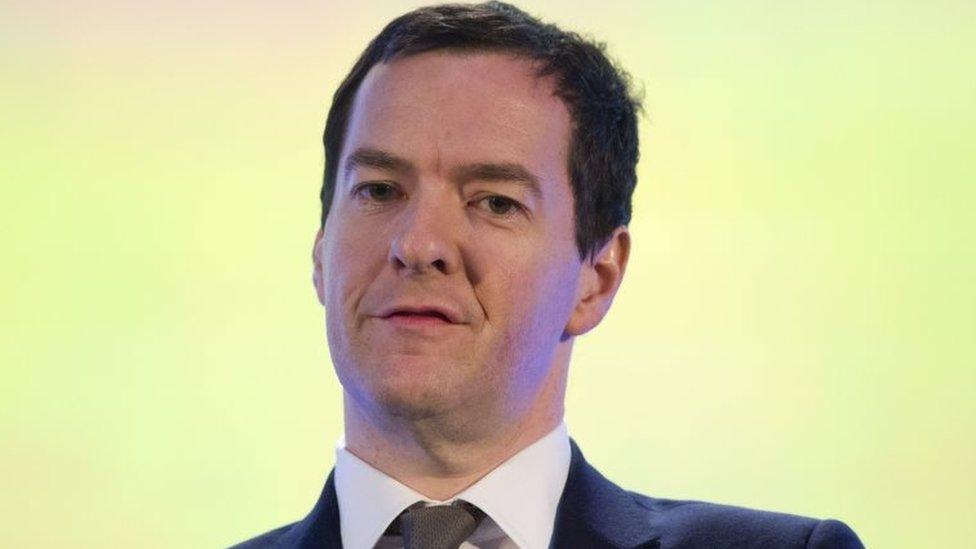Spending Review: George Osborne protects police funding
- Published
Chancellor rolls back on police cuts
Police budgets in England and Wales will be protected in real terms, Chancellor George Osborne has said in his Spending Review.
There had been fears the police budget in England and Wales would face significant cuts.
But Mr Osborne said: "Now is not the time for further police cuts, now is the time to back our police and give them the tools to do the job."
The shadow chancellor said the decision was the result of pressure from Labour.
Mr Osborne also pledged to increase the counter-terrorism budget by 30% and invest in new border security.
The Treasury said police spending would be protected in line with inflation, which would represent an increase of £900m by 2019-20.
Policing is not a protected area of public spending and it had been thought Mr Osborne was considering cuts in police budgets of up to 20% as he sought to make savings of £20bn across all departments.

Analysis by Danny Shaw, home affairs correspondent, BBC News
Why the government decided to perform an about-turn on police spending owes much to effective lobbying by police leaders who warned that further cuts put the police in risky territory.
A number of senior officers and PCCs made representations to the home secretary over the last few months. They were not shroud wavers - but people whose views she respected.
They pointed to the growing signs of strain on police forces and their ability to deal with cyber fraud and sexual offences, reports of which have gone up by 88% since 2012.
The terrorist attacks in Paris then cemented the view in Whitehall that the cuts couldn't go ahead as planned.
If the chancellor had limited the cuts to 10%, which police said they could just about cope with, there'd have been relief among most chiefs and PCCs.
His decision to go even further, no cuts at all, which took the opposition benches by complete surprise, suggests that in the end politics played a key part too.

Mr Osborne told the Commons that he had "received representations" from shadow home secretary Andy Burnham that police budgets should be cut by 10%.
But Mr Osborne said: "I am today announcing that there will be no cuts in the police budget at all, there will be real terms protection for police funding.
"Mr Speaker, the police protect us and we are going to protect the police."
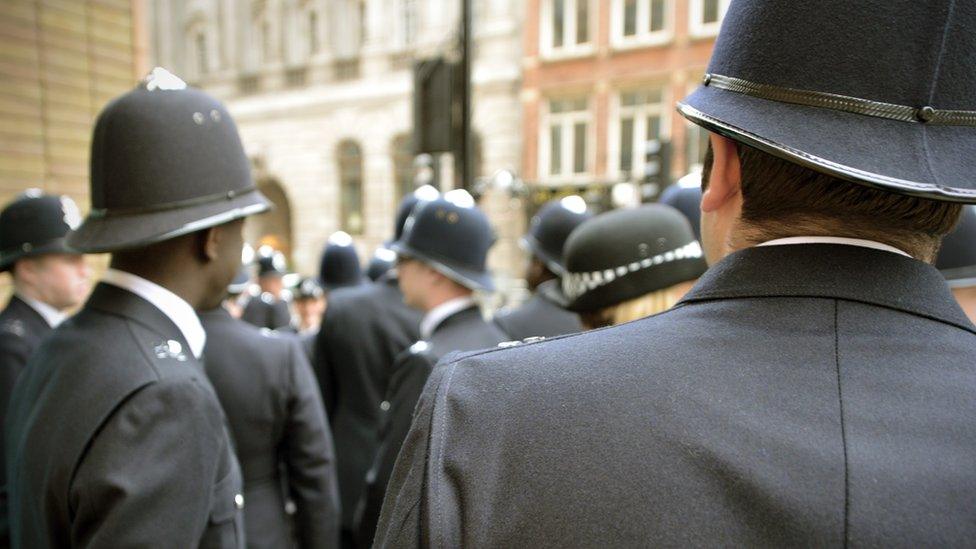
Reporting from a policing conference in Manchester, the BBC's home affairs correspondent Danny Shaw said police looked "astounded" at the news.
He tweeted, external: "Got to say: I didn't see that coming. And no one at the police conference did either. Was it Paris that changed the Govt's mind? #CSR"
The Police and Crime Commissioner for Surrey, Kevin Hurley, told the BBC: "It was almost like euphoria as if your football team had scored a goal. The police and crime commissioner and chief constables are delighted. But of course, we should remember we are already in the process of implementing cuts."
Labour's shadow chancellor John McDonnell said a campaign by Mr Burnham had "forced the U-turn".
He added: "We don't forget, though, we face the highest level of risk from terrorist attack in a generation.
"But we have already lost 17,000 police officers, other cuts under this government."
Steve White, chair of the Police Federation of England and Wales, welcomed the news but said the government urgently needed to revisit the "outdated and antiquated" 43-force structure.
He added: "Officers are still hugely under pressure and many forces still have the final tranche of savings from the last set of cuts to find."
Further details of police funding released by the Home Office include:
An extra £500m of funding for the counter-terrorism budget
More than £1.3bn of capital investment on improved border security
£1bn to "overhaul the emergency services network", including investment in mobile communications
Savings will be made through the borders and immigration system and reductions of 30% to the administrations budget compared with 2015-16
Protection of the National Crime Agency's budget and £200m capital investment in tackling cyber crime, child exploitation and the distribution of criminal finances
'Sharing expertise'
Mr Osborne said police reform needed to continue in this parliament and that police forces would be able to make further savings by merging back offices and "sharing expertise".
He said the government would be offering a new fund to "help this reform".
Mr Osborne also said police and and crime commissioners would have "greater flexibility" to raise precepts - the money given to police through council tax - where they had been "historically low".
Police forces have suffered significant cuts since 2010.
According to the Institute for Fiscal Studies spending on police services in England and Wales fell by 14% in real terms between 2010-11 and 2014-15.
- Published25 November 2015
- Published25 November 2015
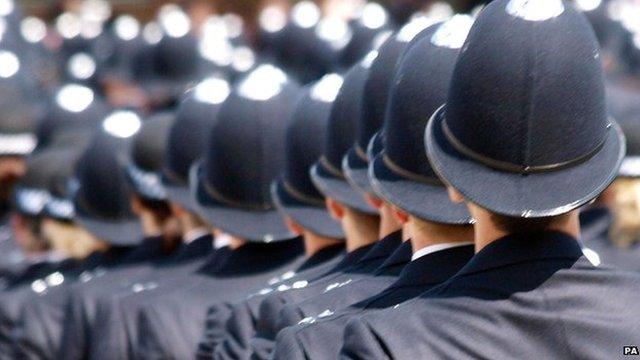
- Published21 July 2015
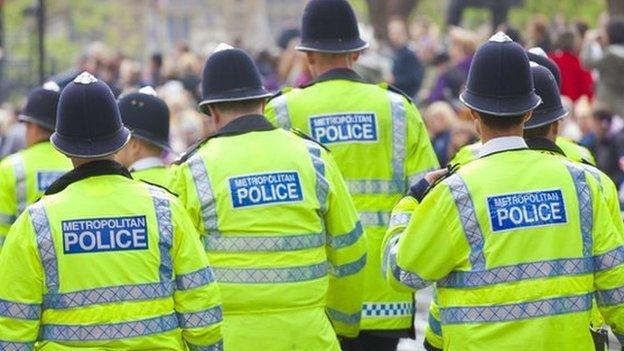
- Published20 November 2015
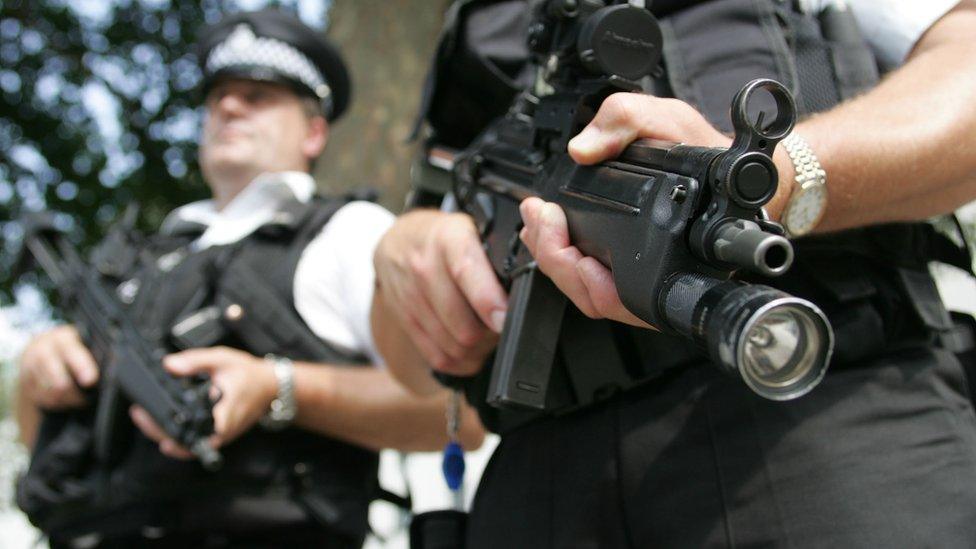
- Published20 November 2015
- Published19 November 2015
- Published24 November 2015
